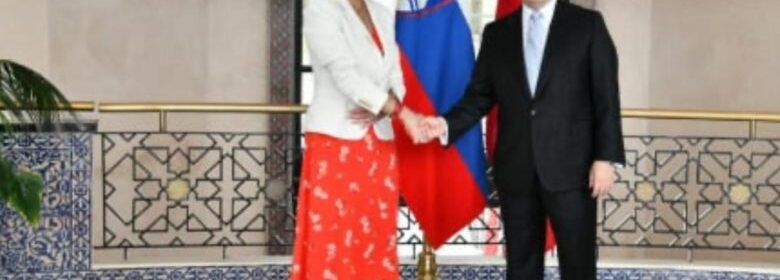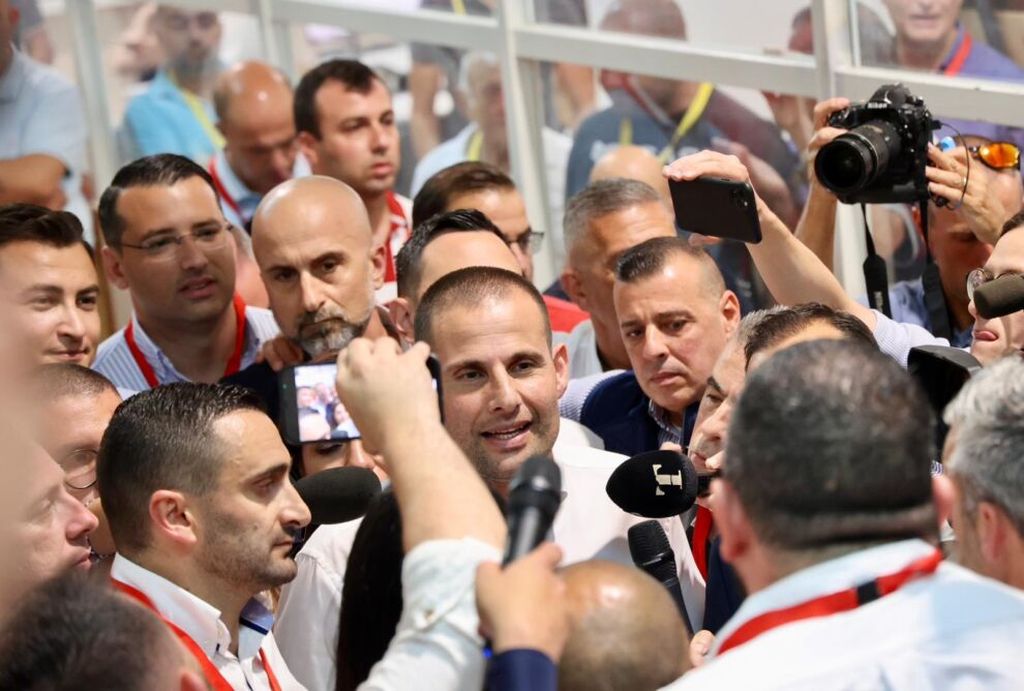
TRAPANI (ITALPRESS) – “The Mediterranean is a crucial hub on many levels, such as cultural and commercial, but it is becoming so more and more from an energy point of view, as a bridge between Europe, Africa, and Asia. Italy is fortunate enough to be in the center of the Mediterranean. It can consolidate itself as an energy bridge between North and South, East and West of the Mediterranean basin”.
This was declared by the Minister of Environment and Energy Security, Gilberto Pichetto Fratin, while speaking during the fourth Workshop of the Presidents of the Mediterranean Energy Association (MEDREG) at the archeological site of Selinunte, in Trapani.
“The Mare Nostrum is already home to many energy infrastructures, such as electricity links, gas pipelines, and LNG terminals,” adding, “The challenge we face is to strengthen and expand infrastructure, to secure greater energy security and to register more progress in decarbonization, and to reach the goal of climate neutrality by the middle of this century. This is a great challenge, and even more significant for the Mediterranean because it is one of the areas most vulnerable to climate change”.
“Energy cooperation is essential as it is an opportunity for each MEDREG country to share its strengths. In this context, the role of Regulators is crucial to stimulate regional integration and energy exchange between countries, favouring the process of energy transition.”
“These days”, added Pichetto Fratin, “we are finalizing the update of the National Energy Climate Plan (PNEC), which will define energy-climate commitments by 2030 horizon, which is a crucial step to achieve climate neutrality by 2050. We will have to deliver the updated version of the Plan to the European Commission by the end of this month. In the process of updating the Plan, a realistic approach based on technological neutrality was followed, which however provides for a strong acceleration of renewable electricity sources; production of renewable gases (biomethane, hydrogen, and other biofuels including HVO – hydrotreated vegetable oil); building renovations, energy efficiency, including the electrification of final consumption”.
“Italy is also evaluating the use of the nuclear source,” continued the Minister. “We have launched the National Platform for Nuclear Sustainability and recently, as the Ministry of Environment and Energy Security, decided to join the European Industrial Alliance on Small Modular Reactors (SMR), to confirm the country’s support and to give a concrete signal of interest to the development of new cutting-edge technologies, which can make an important contribution to decarbonization”.
“A very important part of the Italian National Energy and Climate Plan is regional cooperation in terms of energy infrastructure,” the Minister emphasized, referring to some important projects.
“The Southern Hydrogen Corridor,” he explained, has already been selected at the European level as a Project of Common Interest (PCI). This will help to achieve the target of importing 10 million tonnes of renewable hydrogen by 2030 at the EU level. The project has been strongly supported by Italy from the beginning and is fully in line with the Mattei plan for Africa. Italy, also as the G7 Presidency, has paid great attention to cooperation with Africa and has reiterated the importance of strengthening cooperation with African countries and cooperating to achieve the objectives of decarbonization and energy transition at a global level. The African continent offers great potential that Italy wants to support through the creation of mutually beneficial partnerships on an equal basis, to make Italy an energy hub of the Mediterranean, with the function of a bridge between Europe and Africa”.
“The interventions,” continued the Minister, “will focus on the climate-energy link aimed to strengthen energy efficiency and the use of renewable energies, with actions aimed at accelerating the transition of energy systems, including electricity generation from renewable sources and transmission and distribution infrastructures, as well as the development of the necessary skills and professionalism. Concerning finance, and in conjunction with the objectives of the Mattei Plan, I would like to emphasize that Italy intends to direct an extremely significant share of the Italian Climate Fund, whose total allocation is over EUR 4 billion, to Africa and the Middle East. Italy has also launched the Rome Process, to which several countries that are also part of the MEDREG adhere. The spirit of this initiative is to build partnerships on an equal footing to develop common responses to the current and urgent challenges affecting the countries of the two continents, from migration to the energy transition. At the end of this speech, I reiterate once again the centrality of the Mediterranean Sea in the global energy scenario and the fundamental role of the Regulators in promoting the energy cooperation of the countries within the Mediterranean Basin and achieving a socially equitable energy transition that leaves no one behind”.
– photo Agenzia Fotogramma –
(ITALPRESS).
Source: medNews





















